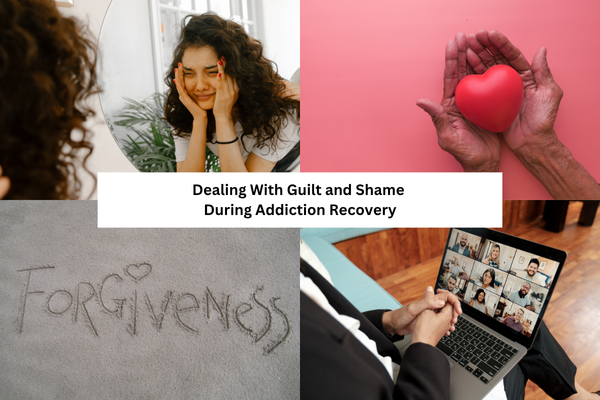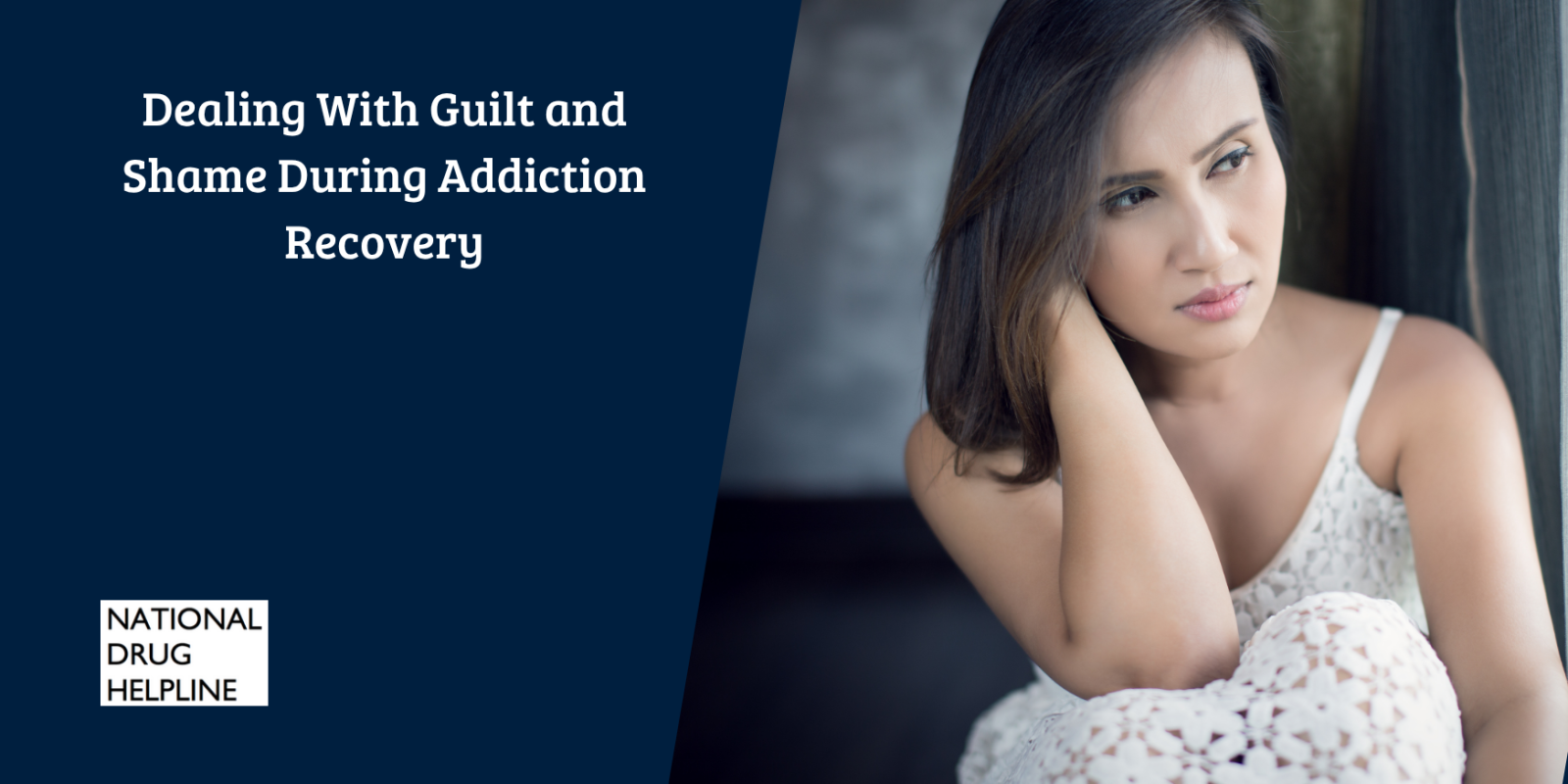During addiction recovery, two of the most difficult emotions to navigate are guilt and shame. These feelings can persist for a long time even after you stop using the addictive substance, and can interfere with healing and progress. If you find yourself facing these emotions, you need to know that you are not alone. There are many tools available for dealing with guilt that can help you go through these emotions and manage them.
Understanding Shame and Guilt in Recovery
It can be quite overwhelming when you experience shame and guilt in recovery. These two emotions are not the same, but are closely linked to each other.
- Guilt is a feeling where you believe you deserve blame for any offense. It may arise from specific actions, such as things you have done or failed to do. It is often tied to a sense of remorse. In people with addiction, guilt may stem from relapsing, lying, or hurting loved ones.
- Shame is where you feel humiliation or distress due to actions you consciously perceive to be wrong or foolish. With shame, you may have a belief that you are flawed or unworthy. In addiction, shame can manifest as self-hatred or worthlessness. This can reinforce the negative self-image that many people in recovery have difficulty overcoming.
It is important to recognize the difference between the two to learn how to let go of guilt and shame in a healthy way.
The Addiction Shame Spiral
The addiction shame spiral can be a vicious loop, as shame and guilt can lead to the use of substances to numb all emotions[1]. Furthermore, these two emotions complement each other, with the pain of shame resulting in behaviors that create more guilt and again reinforce the feeling of shame. This emotional loop can continue to persist even when you begin recovering from addiction, creating internal barriers that slow or hinder recovery.
In order to break this cycle, the first step is to be aware of these emotions and to have self-compassion. If you recognize the patterns of the addiction shame cycle in yourself or a loved one, it is time you seek professional guidance.
Why Addressing Guilt and Shame Is Critical
It is critical to address guilt and shame, as leaving these feelings unresolved can derail all efforts of recovery. Ignoring them can lead to a cascade of events such as:
- Relapse: Guilt and shame are distressing emotions that can trigger cravings and lead to relapse.
- Low self-worth: A sense of low self-worth can make it hard to believe that you deserve recovery.
- Social withdrawal: Withdrawing from social activities due to shame can further hamper recovery as it cuts off the support system that is vital to prevent relapse.
Only by properly navigating and countering these emotions can you help disarm the power that they hold over your recovery. You should understand that you are not a bad person, you are just someone who is struggling to heal yourself.

How to Let Go of Guilt and Shame: Actionable Tips
To let go of guilt and shame does not mean forgetting your past mistakes. It only means you need to take control over your emotions and take ownership of your mistakes in a constructive way.
1. Acknowledge the Emotions
The first step to attain control over your emotions is to acknowledge them. You can do so by journaling or through therapy. Alternatively, you can simply start by saying, “I feel shame or guilt” to your loved ones which can significantly reduce the intensity of the emotion.
2. Challenge Negative Thoughts
Shame is another emotion that comes with distorted beliefs, such as “I’ll never change” or “I don’t deserve help.” Cognitive behavioral therapy (CBT) techniques can help reframe these thoughts in a healthier way.
3. Make Amends Where You Can
In the 12-step program, step 9 encourages making amends either through direct apology or by changing behavior. This can help provide relief from guilt by taking meaningful action.
4. Practice Self-Compassion
Many people with addiction are very harsh towards themselves, but are more compassionate towards others. It is important to speak to yourself as you would to a friend in your shoes and practice self-compassion. It is only human to make mistakes, and what matters most is what you choose to do next.
5. Seek Professional Help
Find a safe space where you can open up freely without fear of judgment. You can approach therapists, peer support groups, and addiction counselors to process guilt and shame. Seeking professional help can make it easier to go through recovery and ensure it is long-lasting.
6. Educate Yourself About Addiction
Know that addiction is not a bad habit or a moral failing, it is an actual disease. Realizing this can shift how you view your past behavior and help you let go of shame and guilt.
Dealing With Guilt in Long-Term Recovery
Even after years into your recovery journey, you may continue to feel waves of guilt and shame. These may be triggered by challenging life events or seeing people from your past. This is natural. Long-term recovery requires continuous control over your emotions.
So if and when guilt resurfaces:
- Do not ignore it: Suppressing guilt and shame can lead to emotional relapse.
- Reflect, don’t ruminate: When you find yourself going through another wave of guilt and shame, learn from it without sinking into it.
- Reach out: Connect with your peers or your loved ones who can help you realize you are not defined by your mistakes alone.
When Guilt Can Be Healthy
Guilt is not always bad. In fact, researchers suggest there is such a thing as constructive guilt[2] that helps you make amends and realign with your values. It is a sign of self-awareness and personal growth. However, it is essential to distinguish between helpful guilt and toxic shame. When guilt leads to reflection and action, it is healthy, but when it leads to self-punishment, it is time to seek support.
Conclusion: You Are Not Defined by Your Past
Recovering from addiction is not about perfecting yourself within a given timeframe, it is about persistence and lifelong progress. It involves dealing with guilt and shame and learning to forgive yourself. Remember, seeking help is not a sign of weakness; it is about bettering yourself.

